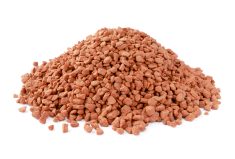Gas taxes are up, riparian credit is gone and nutrient management gets a 10 per cent tax credit in Manitoba’s 2012 budget
Farm leaders were underwhelmed by the first budget from Manitoba’s former agriculture minister.
“I was with other farm leaders afterwards and we really didn’t have much to talk about,” said Doug Chorney, president of Keystone Agricultural Producers.
Finance Minister Stan Struthers’ budget included a top-up of $15 an acre for Excess Moisture Insurance but that had been announced in January. There was also a 10 per cent tax credit for the installation of nutrient management systems, but Chorney said it would provide little relief to farmers who have to install expensive new systems to meet what he described as “ineffective” provincial regulations.
Read Also

Mazergroup’s Bob Mazer dies
Mazergroup’s Bob Mazer, who helped grow his family’s company into a string of farm equipment dealerships and the main dealer for New Holland machinery in Saskatchewan and Manitoba, died July 6 from cancer.
“That’s not going to go very far,” said Chorney. “We’re getting hog barns shutting down because they can’t comply and this won’t change that.”
“This will help producers deal with the additional manure, nutrient management regulations to be introduced in 2013,” added Karl Kynoch, chairman of Manitoba Pork Council. “But we hoped to see more significant support for producers. Based on how important our industry is to the province, we were hopeful that the pork industry would have figured more prominently.”
Both leaders also said they were disappointed the budget did not increase the school tax rebate for farmland, which will remain at 80 per cent.
And while the gas tax is going up by 2.5 cents per litre, the increase won’t apply to diesel fuel.
“This shouldn’t affect farmers in a big way, but it’s never good for industry to have an increase like this,” said Chorney.
But higher fuel costs will hurt municipalities, said Doug Dobrowolski, head of the Association of Manitoba Municipalities, adding he was also disappointed to learn income generated by the gas tax and a $35 increase in vehicle registration fees won’t fund municipal infrastructure, which is in need of repair across the province.
“Overall there is a lot of disappointment with the budget,” said Dobrowolski. “It also provides nothing new for housing, which is something we discussed with government.”
There are housing shortages across the province, and not just in the area of low-income housing, he said.
“Even a young working couple is going to have difficulty finding a home,” he said.
Farmers will be hurt by the decision to apply sales tax to premiums for property, casualty, group life, and land titles insurance, said Tory Agriculture Critic Blaine Pedersen.
“Employees and employers will be paying more,” Pedersen said. “There is nothing positive here, it’s a tax-and-spend budget.”
Manitoba Agriculture, Food and Rural Initiatives will have its budget cut by half a per cent, but that is less than the overall 3.9 per cent reduction in core government spending. However, the province is ending the riparian tax credit, which encouraged the preservation and creation of natural areas that slow and filter water run-off.
“That’s sort of a contradiction in terms of the province’s commitment to healthy waterways,” said Chorney.
Although a relatively small number of producers were using the riparian tax credit, he said there was potential to increase that number by updating the application process.
“It was something that sent the right message to producers, and that is important,” added Ian Wishart, the Tory’s water stewardship critic.
Overall, the government’s projected deficit for 2012-13 is $460 million, which includes taking $56 million out of the rainy-day fund. Struthers said he is confident the government will keep its pledge to balance the books in two years.
“We are on track to return to balance by 2014,” he said. “We will get there responsibly without cutting the services that matter most.”


















